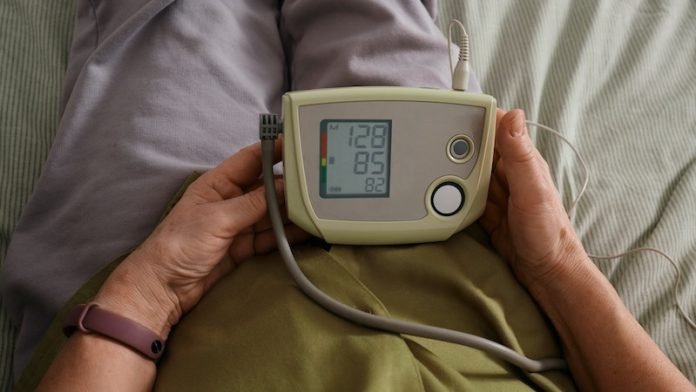
High blood pressure, or hypertension, is a common condition that poses risks for heart disease and other illnesses.
Traditionally, doctors have emphasized maintaining a specific range for diastolic blood pressure.
However, a recent study suggests that focusing on the systolic value might be more important.
The Study Findings: No Lower Limit for Diastolic Blood Pressure
Scientists from NUI Galway and other institutions conducted a comprehensive analysis of data from over 47,000 patients worldwide.
Their findings challenge the notion of a lower limit for diastolic blood pressure. They discovered no evidence indicating harm from reducing diastolic blood pressure to previously deemed low levels.
Impact on Treatment: Treating Systolic Blood Pressure
Based on the study’s results, the researchers recommend treating patients with high blood pressure to achieve a systolic level between 100-130mmHg.
They suggest that doctors can focus on treating the systolic value without concern for diastolic blood pressure falling too low.
Potential Benefits: Rethinking Hypertension Management
This study could revolutionize how doctors approach the treatment of patients with high blood pressure.
By shifting the focus to systolic blood pressure, doctors can refine their treatment strategies and potentially reduce the risk of complications associated with hypertension, such as heart attacks and strokes.
Preventing High Blood Pressure
Prevention plays a vital role in managing high blood pressure. Consider the following measures:
Maintain a healthy weight: Excess weight strains the heart, increasing the risk of high blood pressure.
Adopt a healthy diet: Prioritize fruits, vegetables, whole grains, lean protein, and low-fat dairy products, which can help lower blood pressure.
Limit sodium intake: Excessive sodium consumption can lead to constricted blood vessels and higher blood pressure. Aim for no more than 2,300 milligrams per day.
Engage in regular exercise: Physical activity aids in weight maintenance and blood pressure regulation.
Moderate alcohol consumption: Limit alcohol intake to two drinks per day for men and one drink per day for women.
Quit smoking: Smoking damages blood vessels and elevates blood pressure. Quitting smoking lowers blood pressure and reduces the risk of heart disease.
Manage stress: Chronic stress contributes to high blood pressure. Techniques such as meditation, yoga, and deep breathing exercises can help manage stress.
Regular blood pressure checks: As high blood pressure often has no symptoms, regular monitoring by a healthcare provider is crucial. Early detection allows for timely treatment and risk reduction.
Shifting the Focus to Systolic Blood Pressure
The recent study challenges conventional approaches to managing high blood pressure by emphasizing the importance of systolic blood pressure control.
By following the study’s recommendations, doctors can refine treatment plans and potentially reduce the risk of complications associated with hypertension.
Emphasizing preventive measures and regular monitoring will further contribute to better blood pressure management.
The study was conducted by Bill McEvoy et al. and published in Circulation.
If you care about blood pressure, please read studies that black licorice could cause dangerously high blood pressure, and plant pigment can strongly reduce blood pressure.
For more information about blood pressure, please see recent studies about the best time to take high blood pressure drugs, and results showing this common painkiller could strongly raise your blood pressure.
Copyright © 2023 Knowridge Science Report. All rights reserved.



